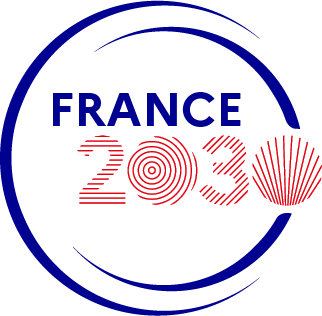

Coordinators: Stéphanie Blandin and Nicolas Blanchard
Participants: Blandin, Delauw, Blanchard, Pied, Mazier, Silvie, Scherf /Mecheri
We will examine mechanisms of protective immunity employed by vectors and hosts against protozoan parasites. On the vector side, we will focus on the innate arm of the immune responses and will dissect mechanisms of complement-like cascade activation and Plasmodium killing in the African malaria vector Anopheles gambiae. In the mammalian host, we have chosen to examine how modulation of CD8 responses by spatial and temporal compartmentalization of parasite antigens impacts resistance of a mammalian host to Toxoplasma gondii and to the liver stages of P. berghei. This WP will contribute to a better understanding of the mechanisms of immunity and may reveal novel strategies to rationalize vaccine design.
Mechanisms of anti-parasite immunity
This WP aims at identifying the mechanisms of protective immunity employed by vectors and hosts against protozoan parasites.
Description of work: We will dissect the innate immune mechanisms that mediate Plasmodium killing in the African malaria vector Anopheles gambiae. One of the key players that determine mosquito resistance to malaria parasites is the complement-like protein TEP1. Our aim is to decipher the molecular mechanisms that underlie the unique proprieties of TEP1 and of its interacting partners in killing malaria parasites and bacteria. For this purpose, we will develop and use a simple and robust functional screen to analyze the contribution of candidate TEP1interacting proteins to mosquito resistance to malaria. In the mammalian host, protozoan parasites secrete many effectors in the parasitophorous vacuole, some of which reach the MHC I presentation pathway and are targeted by CD8+ T cell responses with various efficacies and different protective outcomes. We will examine how modulation of CD8+ T cell responses by spatial and temporal compartmentalization of parasite antigens impacts host resistance to Toxoplasma gondii or liver stages of Plasmodium. Comparative analysis of the two infection systems should identify conserved mechanisms underlying parasite evasion strategies and host susceptibility to malaria and toxoplasmosis. This WP will contribute to a better understanding of the mechanisms of immunity and may reveal novel strategies to rationalize vaccine design.
Deliverables:
D1. Demonstration of protein networks underlying anti-parasitic responses in mosquitoes (Blandin/Levashina)
D2. Impact of spatial and temporal compartmentalization on antigen presentation and parasite control during Toxoplasma infection and malaria pre-erythrocytic stages (Blanchard, Delauw, Silvie)
Mechanisms of pathogenesis.
In this WP we will investigate the mechanisms involved in the pathogenesis of parasitic diseases including
severe forms of malaria and trypanosomiasis, in animal models and humans. Description of work: Cerebral malaria (CM), one of the most severe complications of malaria, is characterized by the sequestration of parasitized erythrocytes and leukocytes in brain capillaries. Experimental rodent models of CM have suggested that CD8+ T cells and neutrophil-associated high affinity receptor for IgE may contribute to the pathogenesis of CM. Parasite-derived epitopes recognized by CD8+ T cells in susceptible mice are unknown. Using an expression cloning approach in an established experimental model for CM (P. berghei ANKA strain in susceptible mice), we will identify parasite antigens recognized by CD8+ T cells during CM and use that knowledge to advance our understanding of the mechanisms of CM pathogenesis. Furthermore, we will analyse the molecular and cellular components that modulate the expression of FceRI on neutrophils during infection and characterize the mechanisms leading to FceRI-positive neutrophil adhesion to the brain vasculature. Severe malaria is prevalent in Eastern India, where clinical and ethnic signatures are different from the widely studied African population. To identify immune signatures associated with P. falciparum malaria protection or severity, we will analyze genome-wide host associations linked to clinical investigations and immune responses studies using transcriptomic, genomic and proteomic approaches performed on well-characterized groups of malaria patients in India. By providing a global integrated multidimensional view of malaria, we will generate information that may be useful for the design of new control strategies against malaria and possibly other mosquito-borne infections. We will also investigate parasite factors involved in the pathogenesis of severe malaria. Through transcriptomic analysis of P. falciparum field isolates, we have previously defined a set of candidate parasite genes associated with severe P. falciparum malaria. We will study the role of these molecules during CM using established in vitro assays of endothelial cell damage, and a novel humanized mouse model specifically designed for in vivo analysis of P. falciparum pathogenesis.
Anaemia is the main pathological feature of African Animal Trypanosomiasis (AAT). Variations in erythrocyte sialylation states have been described in AAT and recent studies on T. congolense and T. vivax, the most virulent species causing AAT, proposed that trypanosomal sialidases contribute to erythrocyte surface desialylation, thereby inducing erythrophagocytosis and subsequent anaemia. Using a novel ex vivo erythrophagocytosis model combined with genetic approaches, we will investigate the role of parasite sialidases in anaemia and screen for additional trypanosomal molecules that contribute to anaemia.
Deliverables
D1: Antigen specificity and effector profile of sequestered CD8+ T cells during CM (Blanchard)
D2: Validated database which associates human immune responses (antibody, T cells and cytokines) with different malaria clinical sub phenotypes in India (Pied and Indian collaborators)
D3: Identification of P. falciparum molecules implicated in cerebral malaria pathogenesis (Mazier, Mecheri/Scherf)
D4: Identification of parasite effectors of erythrophagocytosis during African Animal Trypanosomiasis
(Baltz)
The INSERM workshop “Modern methods in molecular parasitology” will take place in Montpellier, France, from 4–6 November 2026. This event will bring together leading experts in...
The 15th CAPF (French Anti-Parasitic and Anti-Fungal Consortium) workshop will take place on 16–17 March 2026 in Strasbourg (France). This event is an excellent opportunity for students and postdoctoral researchers to participate and contribute...
Call for Applications: New Junior Research Groups at Institut Pasteur The Institut Pasteur has launched an international call to recruit new junior group leaders.This is a unique opportunity for high-potential scientists to...
JOB : Ingénieur·e d’étude / Research Engineer – Mosquito Immunity (IBMC, Strasbourg) 🇫🇷 Le laboratoire Mosquito Immune Responses recrute un·e ingénieur·e d’étude à l’IBMC (Strasbourg). La personne recrutée sera en...
Applications are now open for the 2026 Biology of Parasitism (BoP) course, taking place June 12–July 23, 2026 at the Marine Biological Laboratory in Woods Hole, MA.This intensive 6-week program offers PhD students and postdocs advanced training in...
Newcastle University offers a full-time, fixed-term position (3 years) for a Research Assistant or Research Associate in Molecular Parasitology — funded by the Medical Research Council (MRC). About the Opportunity Location:...
Multidisciplinary PhD opportunity in the fields of infectious diseases, gene regulations and molecular signalisation. Fully Funded 4-Year PhD at the University of York A fully funded PhD opportunity is available at the...
The EMBO Workshop 2025 “Host–Parasite Relationship: From Mechanisms to Control Strategies”, took place from October 5–8, 2025, on the beautiful Île des Embiez (France). Organized within the framework of the LabEx ParaFrap and...
Postdoc (M/F) in molecular and biochemical parasitology (Toxoplasma gondii) A 24-month post-doctoral position starting on January 2026 and funded by the French National Research Agency (ANR) is available in the in the...
Postdoc (M/F) Molecular and cell biology in Trypanosoma brucei A 24-month post-doctoral position starting on November 1st 2025 (or before) and funded by the French National Research Agency (ANR) is available in the...

© 2023. All rights reserved MLCOM
Notre site LabEx ParaFrap utilise des cookies pour réaliser des statistiques de visites, partager des contenus sur les réseaux sociaux et améliorer votre expérience. En refusant les cookies, certains services seront amenés à ne pas fonctionner correctement. Nous conservons votre choix pendant 30 jours. Vous pouvez changer d'avis en cliquant sur le bouton 'Cookies' en bas à gauche de chaque page de notre site. En savoir plus
Ce site utilise des cookies pour assurer son bon fonctionnement et ne peuvent pas être désactivés de nos systèmes. Nous ne les utilisons pas à des fins publicitaires. Si ces cookies sont bloqués, certaines parties du site ne pourront pas fonctionner.
Ce site utilise des cookies de mesure et d’analyse d’audience, tels que Google Analytics et Google Ads, afin d’évaluer et d’améliorer notre site internet.
Ce site utilise des composants tiers, tels que NotAllowedScript699082ed141bcReCAPTCHA, Google NotAllowedScript699082ed13e9fMaps, MailChimp ou Calameo, qui peuvent déposer des cookies sur votre machine. Si vous décider de bloquer un composant, le contenu ne s’affichera pas
Des plug-ins de réseaux sociaux et de vidéos, qui exploitent des cookies, sont présents sur ce site web. Ils permettent d’améliorer la convivialité et la promotion du site grâce à différentes interactions sociales.
Ce site web utilise un certain nombre de cookies pour gérer, par exemple, les sessions utilisateurs.

